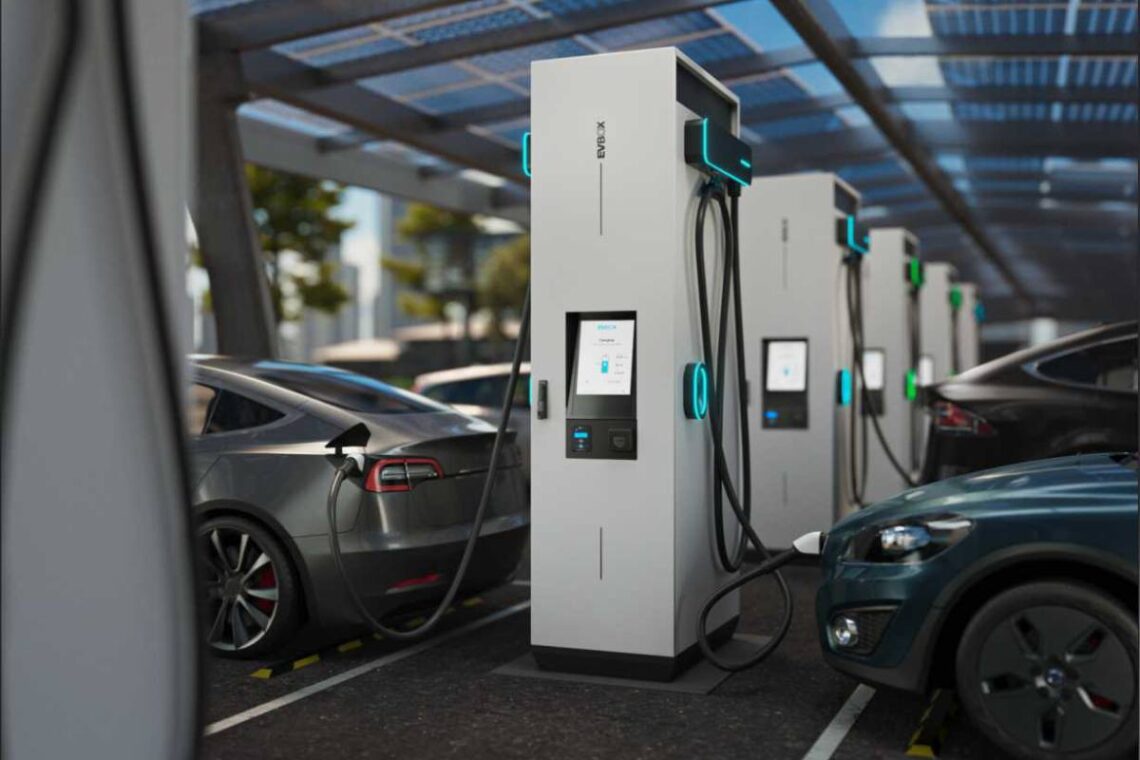The global shift towards electric vehicles (EVs) is gaining momentum, driven by concerns about climate change, energy efficiency, and reduced emissions. As the number of EVs on the road continues to rise, the accessibility of reliable and reachable charging infrastructure becomes increasingly critical.
Electric car chargers play a crucial role in supporting the adoption of EVs. By providing convenient and efficient charging options, these chargers enable drivers to integrate electric vehicles into their daily lives seamlessly. This article will study the different types of electric car chargers, their benefits, and the factors to consider when making a choice.
Types Of Electric Car Chargers
Electric car chargers are classified into three levels based on their power output:
-
Level 1 Chargers
These are standard household outlets (120V) that can be used to charge EVs overnight. They are suitable for low-mileage driving and plug-in hybrid vehicles.
-
Level 2 Chargers
Level 2 chargers deliver faster charging speeds using 240V outlets. They are usually found in homes, workplaces, and public charging stations.
-
Level 3 (DC Fast) Chargers
These chargers deliver the highest power output, allowing for rapid charging of electric vehicles in a short amount of time. They are typically located at public charging stations along major highways and transportation hubs.
Factors To Consider When Choosing An Electric Car Charger
When selecting an electric car charger, consider the following factors:
-
Charging Speed
Determine the desired charging speed based on your daily driving needs and the type of electric vehicle you own.
-
Installation Requirements
Assess the electrical capacity and physical space available for installation.
-
Compatibility
Ensure the charger is unanimous with your electric vehicle’s charging port.
-
Cost
Consider the initial purchase value, installation expenses, and potential energy savings.
-
Safety Features
Look for chargers with built-in safety attribute to protect your vehicle and electrical system.
Benefits Of Installing An Electric Car Charger
Installing an electric car charger offers several benefits:
-
Convenience
Charge your electric vehicle at home or work beyond the need to visit public charging stations.
-
Cost Savings
Reduce fuel costs and potentially qualify for government incentives or rebates.
-
Environmental Benefits
Contribute to a cleaner and more sustainable future by reducing carbon emissions.
-
Increased Property Value
Installing an electric car charger can increase the worth of your property, especially if you plan to sell it in the future.
Challenges And Considerations
While electric car chargers offer numerous advantages, there are some challenges to consider:
-
Infrastructure Development
The availability of charging infrastructure, mostly in rural areas or during peak usage times, may be limited. Just as reliable electric car chargers are essential for efficient transport solutions, partnering with a specialized boat shipping company ensures secure and eco-friendly shipping for larger assets like boats.
-
Grid Capacity Limitations
In some regions, the electrical grid may need to be upgraded to hold the increased demand from electric vehicles.
-
Initial Costs
The initial cost of purchasing and installing an electric car charger can be a factor to consider.
Future Trends In Electric Car Charging
The future of electric car charging is promising, with several trends emerging:
-
Advancements in Charging Technology
Faster charging speeds and more efficient charging solutions are being developed.
-
Expansion of Charging Infrastructure
Governments and exclusive companies are investing in building out charging networks to support the growing number of electric vehicles.
-
Integration with Smart Grid Technologies
Electric car chargers can be integrated with smart grids to optimize energy management and reduce peak load.
As the electric vehicle market continues to grow, it is needed to have a robust charging infrastructure in place to support the transition to a sustainable transportation future. By carefully considering the parts outlined in this article, you can choose the right electric car charger to meet your needs and contribute to a cleaner and greener planet.
Future Trends In Electric Car Charging
Electric car charging technology is rapidly evolving, with several promising trends emerging:
-
Advancements in Charging Technology
Faster charging speeds and more efficient charging solutions are being developed, such as ultra-fast DC chargers and wireless charging technologies.
-
Expansion of Charging Infrastructure
Governments and private firms are investing in building out charging networks to support the growing number of electric vehicles. This includes distend the availability of public charging stations in urban and rural areas.
-
Integration with Smart Grid Technologies
Electric car chargers can be integrated with smart grids to optimize energy management, reduce peak load, and support grid stability.
-
Bi-directional Charging
Some future electric vehicles may have the capability to discharge power back into the grid, providing grid support and potentially generating revenue for vehicle owners.
-
Autonomous Charging
Advances in autonomous technology may enable electric vehicles to automatically locate and connect to charging stations, simplifying the charging process for drivers.
As these trends remain to develop, we can await to see even more innovative and convenient electric car charging solutions in the future.
Conclusion
The transition to electric vehicles is getting momentum, and the availability of reliable and accessible charging infrastructure is crucial for widespread adoption. By understanding the different types of electric car chargers, their benefits, and the factors to consider when making a choice, you can select the right solution for your needs and contribute to a more sustainable future.
Your Partner In Sustainable Transportation
Schneider Electric offers a comprehensive range of home electric car charger solutions to meet your specific needs and budget. With cutting-edge technology and a adherence to sustainability, we can help you seamlessly integrate electric vehicle charging into your daily routine.

